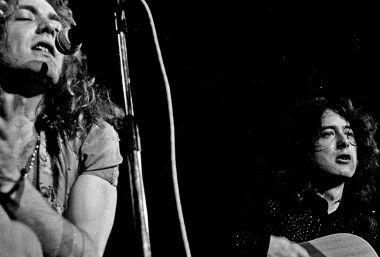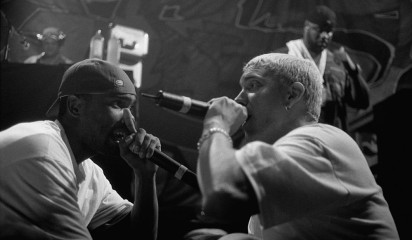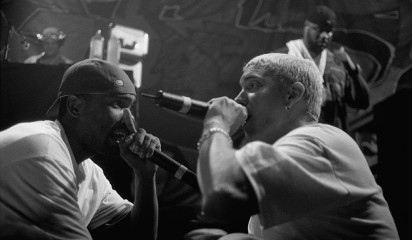The copyright case brought against the 1970s UK band, Led Zeppelin, in the US in 2014 has finally come to a conclusion—hopefully!
The US Court of Appeals for the Ninth Circuit issued a full court opinion on 9 March this year confirming the judgment of the District Court for the Central District of California that Led Zeppelin’s song Stairway to Heaven (composed by the band’s guitarist Jimmy page and singer Robert Plant, and rated as one of the greatest rock songs), did not infringe the copyright in Randy Wolfe’s composition, Taurus—an instrumental piece.
Wolfe, known as ‘Randy California’, wrote Taurus in 1967 for his band, Spirit. The copyright claim related only to the acoustic guitar opening in the first two minutes of Stairway to Heaven, a lengthy eight-minute song, which was first released in 1971. It was one track on the album (vinyl LP) known as ‘Led Zeppelin IV’ and was another song intended to demonstrate that Led Zeppelin was no longer solely a hard rock band.
The late Randy Wolfe’s estate, for whom Michael Skidmore was trustee, sued Led Zeppelin 43 years after the release of Stairway to Heaven, claiming that the guitar riff in the first part of Stairway to Heaven was a copy of the eight-bar passage at the beginning of Taurus.
Law
Copyright protects three main categories of works in the music world. These are music compositions (musical works), lyrics and sound recordings. In the US, the copyright in musical works protects not just the music itself, but also any accompanying lyrics. This copyright is owned by the composers. In New Zealand, as with other countries who adopted the British model, lyrics are treated separately from the music they accompany. Lyrics are considered literary works having their own separate copyright, allowing not only the possibility of a different owner, but also a different term of protection since this is based on the life of the respective ‘authors’.
The recording copyright is owned by the recording company who records a performance of the music. Unlike most countries, US copyright law did not confer copyright in sound recordings until a 1971 amendment to their 1909 Copyright Act, and then only for recordings made after February 1972. This meant there was no US recording copyright in Taurus that could be asserted. In the UK and New Zealand, copyright was conferred in sound recordings (‘mechanical instruments’) back in 1911 and 1913 respectively.
Furthermore, as Taurus was an instrumental piece, copyright in lyrics was not an issue. However, if copyright could subsist in a three-word song title, an older songwriter might have been tempted to sue Led Zeppelin. A song titled Stairway to Heaven (with different lyrics) was a hit written and sung by Neil Sedaka back in 1960.
US District Court Central District of California decision
At the 2014 District Court trial, the judge made a number of decisions on what evidence could be given and how the jury should be instructed. It should be mentioned that, as with virtually all US trials, this one was a jury trial—something which is virtually limited to criminal trials in New Zealand (and UK, Australia and Canada). In copyright cases in New Zealand, a judge makes all the decisions, including on the crucial question of what is called ‘objective similarity’.
The judge decided that the sheet music filed at the Copyright Office with the application to register copyright for Taurus was the sole benchmark for determining whether Stairway to Heaven was substantially similar to Taurus. (In the US, unlike New Zealand and other countries who were signatories to the Berne Convention 1886, copyright protection could only be obtained by a registration process a little like registering a trade mark). This meant no recordings of Spirit’s performance of Taurus should be used to assess copyright infringement. Skidmore had wanted the jury to be able to listen to a recording of Taurus, not just to avoid the jury having to rely on evidence from musicologists, but because in Spirit’s recorded performances, useful embellishments had been added. Judge Klausner had also decided in a preliminary decision that evidence from Skidmore’s expert witness, which was based on elements introduced in the recorded performance, should be rejected.
The jury’s verdict was in favour of Led Zeppelin. They decided the two pieces of music were not sufficiently similar to amount to infringement of copyright. However, Skidmore appealed and a three-judge panel of the Appeals Court vacated the District Court judgment and ordered a new trial where the jury could hear recordings of Taurus and compare Led Zeppelin’s recording with these instead of the sheet music.
Led Zeppelin, in turn, sought a rehearing of this decision by a full court of the Appeals Court—that is, before 11 Appeal judges.
Appeals Court decision
The Appeals Court affirmed the jury’s verdict in favour of Led Zeppelin.
Wolfe had not attempted to sue in his lifetime—he died in 1997. Before getting into an in-depth analysis of copyright infringement law, the Court noted that since more than 40 years had passed after Stairway to Heaven was released before Wolfe’s estate had sued, it would normally have been thrown out. In the US, copyright suits must be commenced within three years of the infringing act—that is, the release of the allegedly infringing recording. Although the Court came up with another reason, Wolfe’s estate was actually given a second chance to sue because Jimmy Page had re-issued the Led Zeppelin IV album in 2014 as a ‘super-deluxe’ CD version using high-resolution, digitally remastered versions of the original recording studio master tapes. This set a new three-year period running.
The first and the most major copyright question the Court had to consider was which US Copyright Act applied to this case. Because the ‘current’ Copyright Act 1976 was not in force when Taurus was composed in 1967, the Appeals Court held that the applicable law was that laid down in the 1909 Copyright Act. The Court noted that while the 1976 Act allowed a recording to be deposited with the Copyright Office in place of sheet music, that Act did not apply to events prior to 1978 when it had come into force. And, in the Court’s words, under the 1909 Act, ‘the deposit copy [of the Taurus music] defined the four corners of the Taurus copyright’.
In relation to this aspect, the situation would have been different in New Zealand. Not only does the current Copyright Act 1994 apply to musical works created before it came into force, but copyright subsists in a musical work as soon as the work ‘is recorded, in writing or otherwise’: s.15(1). Even if the music is not composed as sheet music, it will attract copyright as soon as it is recorded and the sound recording can be used as the benchmark for ascertaining similarity—even though the owner of the copyright in the recording will not be the composer. For example, a recording of Eminem’s Lose Yourself was used in the most recent New Zealand music copyright case, Eight Mile Style v New Zealand National Party (2017).
Under US law, infringement analysis involves two questions: has there been ‘copying’ and has there been ‘unlawful appropriation’? The Court noted that the latter question equates to: do the works share substantial similarities? In New Zealand and the UK, these two issues have traditionally been expressed as: (i) is there a causal connection between the two works and (ii) is there a sufficient degree of objective similarity between them? We also add a third: does what has been copied amount to a substantial part of the claimant’s work?
As to the first question, when Jimmy Page gave evidence, he admitted he had in his vast record collection the Spirit LP, which contained the Taurus track, although he denied he had used it in any way when composing Stairway to Heaven. On the issue of substantial similarity, the Court confirmed that in their Circuit this involved two consecutive tests. The first was ‘the extrinsic test’ of comparing objective similarities—that is the New Zealand test. The second was ‘the intrinsic test’—the degree of similarity from the point of view of an ordinary reasonable observer, with no expert assistance. The New Zealand Copyright Act 1994 does not incorporate a non-expert test like this. However, Justice Cull in Eight Mile Style was happy with the notion that ‘a comparison of musical works is a subjective test of hearing for a judge to determine similarity’, citing the judgment in the Australian case Grignon v Roussel (1991). Most judges will, of course, be non-experts.
It is clear the Appeals Court empathised with the jury on their rejection of substantial similarity from their references to the analysis and explanations given by Led Zeppelin’s expert witness, musicologist Dr Lawrence Ferrara. For example, ‘the similarity in the three two-note sequences is not musically significant because in each song the sequences were preceded and followed by different notes to form distinct melodies. He [Ferrara] described the purported similarity based on these note sequences as akin to arguing that ‘crab’ and ‘absent’ are similar words because the both have the letter pair ‘ab’.’
Beyond the court scene, on YouTube, Thomas Rozdilsky (known as ‘TJR’) in playing both the Taurus and Stairway to Heaven introductions described their similarity as the use of a commonly used A minor descending bassline, but differed by the use in Stairway to Heaven of a second ascending melody from A to F sharp.
Finally, the Court found no problem with the intrinsic (non-expert) test not being carried out by the jury because that is only required if they find substantial similarity under the extrinsic test. The jury had, of course, already found that there were no original portions of Taurus present in Stairway to Heaven.
Conclusion
From the viewpoint of copyright lawyers in other jurisdictions, this case (among other things) revealed the failure of the US 1976 Copyright Act to have suitable transitory provisions, which would have avoided the need to apply early 1900s law to concepts created in the rock era. In contrast, the New Zealand Copyright Act 1994, rather than either of the 1962 or 1913 Acts, would apply to music copyright infringement that occurred long prior to it coming into force in 1995.





